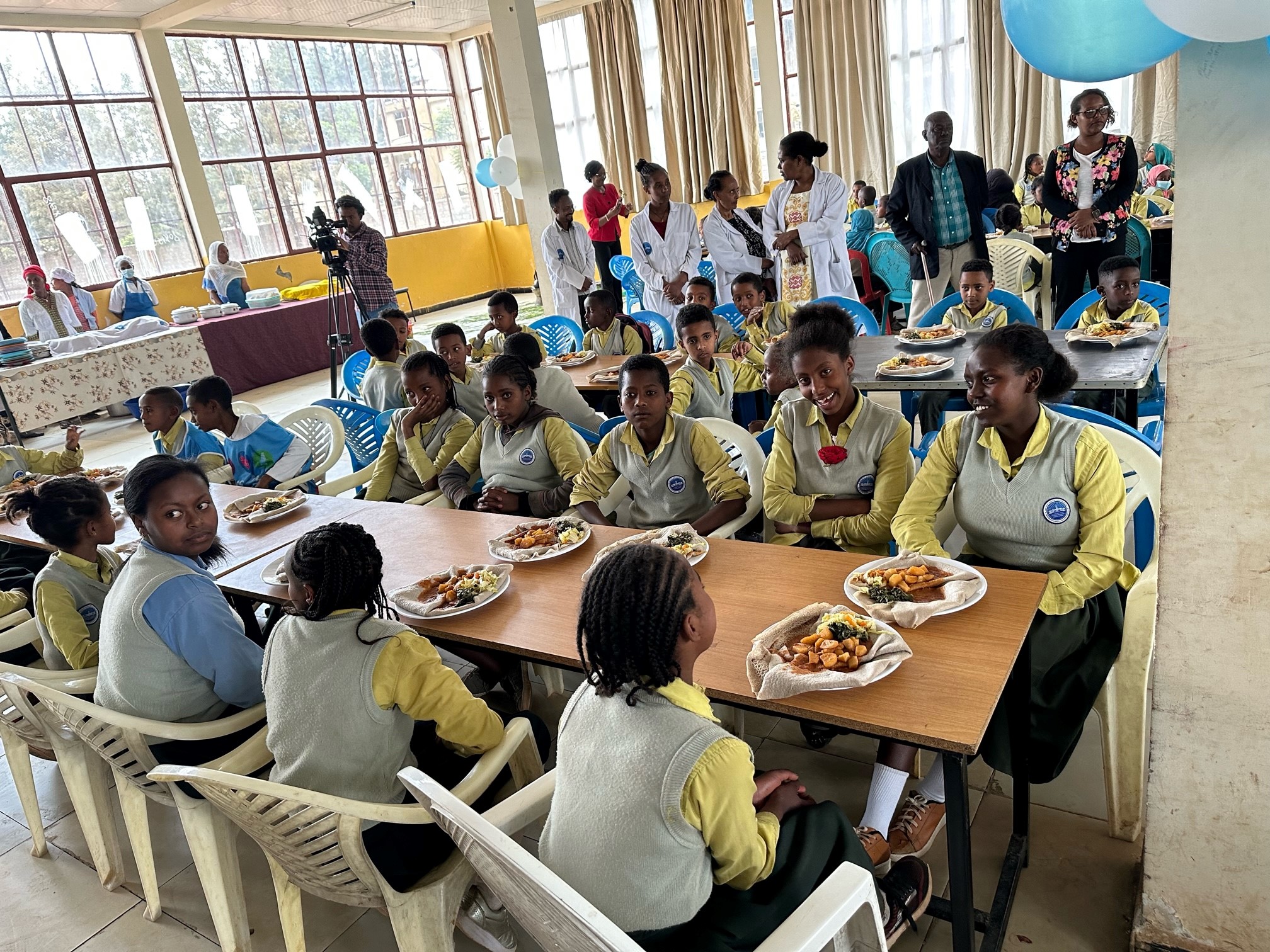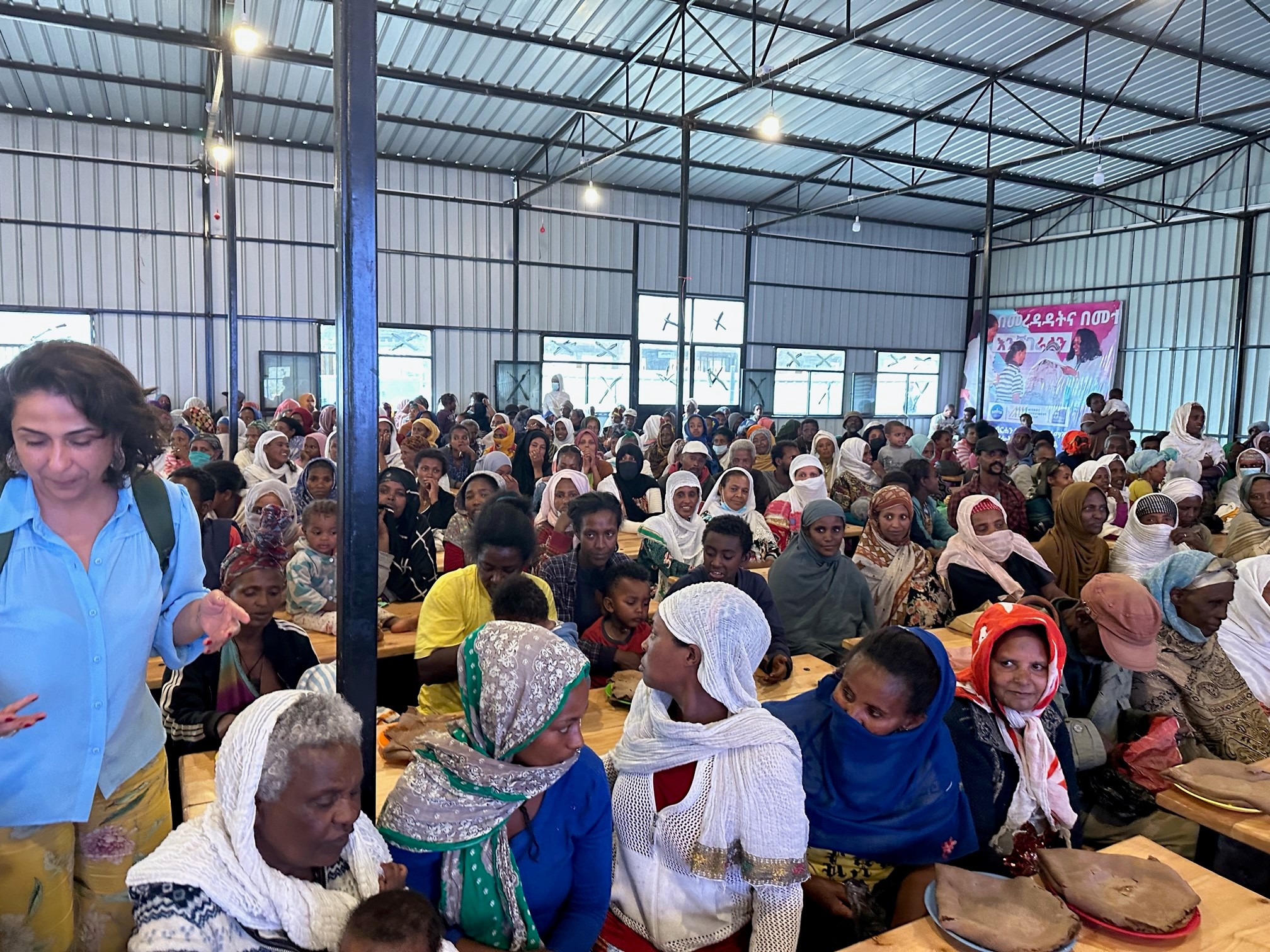
The celebrations for the 8th edition of Africa School Feeding Day, celebrated annually on March 1st, take place this year in Addis Ababa, Ethiopia, with the theme “Boosting local food procurement systems and regional value chains in the context of the African Continental Free Trade Area (AfCFTA) for School Feeding with Local Purchasing”.
The activities started on 27 February and lasted until 1 March, with activities and lectures that showed the impact of school feeding programmes with local purchases for African countries. Brazil participated in the event through a delegation composed of members of the World Food Programme (WFP) Centre of Excellence against Hunger in Brazil, the Brazilian Cooperation Agency (ABC), the National Fund for Education Development (FNDE, in Portuguese) and the Brazilian Ministry of Agrarian Development and Family Agriculture.
The date was instituted in 2016 by African Union heads of state after a delegation conducted a study visit to Brazil to take a closer look at Brazil’s approach to school feeding and discuss the terms of collaboration of the Centre of Excellence against Hunger with the African Union. African School Feeding Day marks the commitment of African countries to promote school feeding programmes as a strategy to achieve the Sustainable Development Goals.
“The progress of countries on the African continent, such as Ethiopia, in developing national school feeding programmes is impressive. Today they already serve almost 5 million students with their own resources. And they recognize and are grateful for the support received by the Brazilian government, through the WFP Centre of Excellence against Hunger in Brazil, to reach the current level. Living this experience is already worth all the work done”, said the Director of the WFP Centre of Excellence in Brazil, Daniel Balaban, who attended the three days of celebration.
Celebrations and events

This year’s Africa School Feeding Day celebrations featured three moments. On the first day, 27 February, an online event brought together the celebrations in Addis Ababa and Marrakech, Morocco. The event was opened by the African Union and the Ministers of Education from Ethiopia and Morocco and featured presentations of school feeding programmes from the host countries and Brazil. The event was also attended by high-level representatives from Kenya, Rwanda, Zambia, Nigeria, Burundi, Ghana, Mauritania, Zimbabwe, Benin, Chad and Egypt.
During the Brazilian presentation, the Coordinator of Food and Nutritional Security of the National Fund for Education Development (FNDE), Solange Freitas, showed the advances of the National School Feeding Programme (PNAE) and the process of local food purchases as examples of the Brazilian experience with school feeding. On the first day, the working structure of the School Meals Coalition, an initiative launched in 2021 at the Food Systems Summit with the aim of ensuring that every child in the world receives a healthy meal at school by 2030, was also presented.
On the second day, 28 February, at an event at the WFP office in Ethiopia, the visiting delegations met for a technical talk followed by visits to Addis Ababa’s Makedela Primary School, where the city mayor, Adenech Abebe, showed the gardens grown by the students and the school feeding process. Afterwards, the delegations went to the Geja Community Feeding Centre, which is maintained by the municipality with food purchased from small farmers to feed vulnerable populations in the capital.
The big celebration took place on 1 March at the African Union headquarters in Addis Ababa, at a hybrid event attended by African Union Commissioners and ministers from several countries to launch the new Biennial Report on School Feeding with Local Procurement, the flagship publication on continental progress on the school feeding agenda. At the occasion, the Director of the Centre of Excellence, Daniel Balaban, presented the institution’s work in supporting the implementation of school feeding programmes with the governments of African countries.
“The importance of this celebration with the countries of the continent is very great. There has been a large-scale development of school feeding policies in recent years. And for this to happen, our continued support in developing these policies is crucial so that in the near future we can have all young African students receiving healthy and nutritious food in their schools,” said Daniel Balaban.




